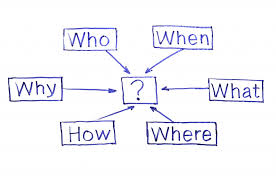One of the main characteristics of philosophical activities is criticism. Philosophers criticize. Philosophy carries out its function of criticism in two ways:
- Poking Holes
- Proposition Alternatives
First, philosophy pokes holes in propositions and arguments. It examines propositions to see if they are meaningless, vague, ambiguous, or false; it examines arguments to see whether they are valid or invalid, sound or unsound.
More generally, philosophers test assertions and arguments to see how strong they really are. Appearances in this regard are often misleading – as most of us have learned through hard experience with advertisements, sales pitches, and promises.
A second way in which philosophers criticize theories is by proposing alternatives to them.
This function of philosophy is important because of the limitations of our individual experience and imagination.
Sometimes we ascribe greater strength to a theory than it deserves because we know of no alternative.
Why do philosophers poke holes in propositions and propose alternatives to whatever is claimed? Not because they are quarrelsome people, but in order to advance our pursuit of knowledge.
More abstractly, a proposed solution to a problem must be critiqued in order that we might determine:
- Whether it is an adequate solution to the problem.
- Whether it is the only adequate solution or one of two or more adequate solutions
- If the latter, whether it is superior, inferior, or equal to the other solutions.
Clearly, our problem solving effort will become more effective and satisfactory when asking these questions becomes second-nature to us.
We might define philosophy in its critical role as an unflinching analysis of all beliefs, including the ones that are most precious to us. To study in details of this method, Thinking Philosophy by Richard E. Creel , is the best book.
Picture Citation:
Why Critical Path Method Is an Important Take-Away for Supercharging The Project Planning Process

